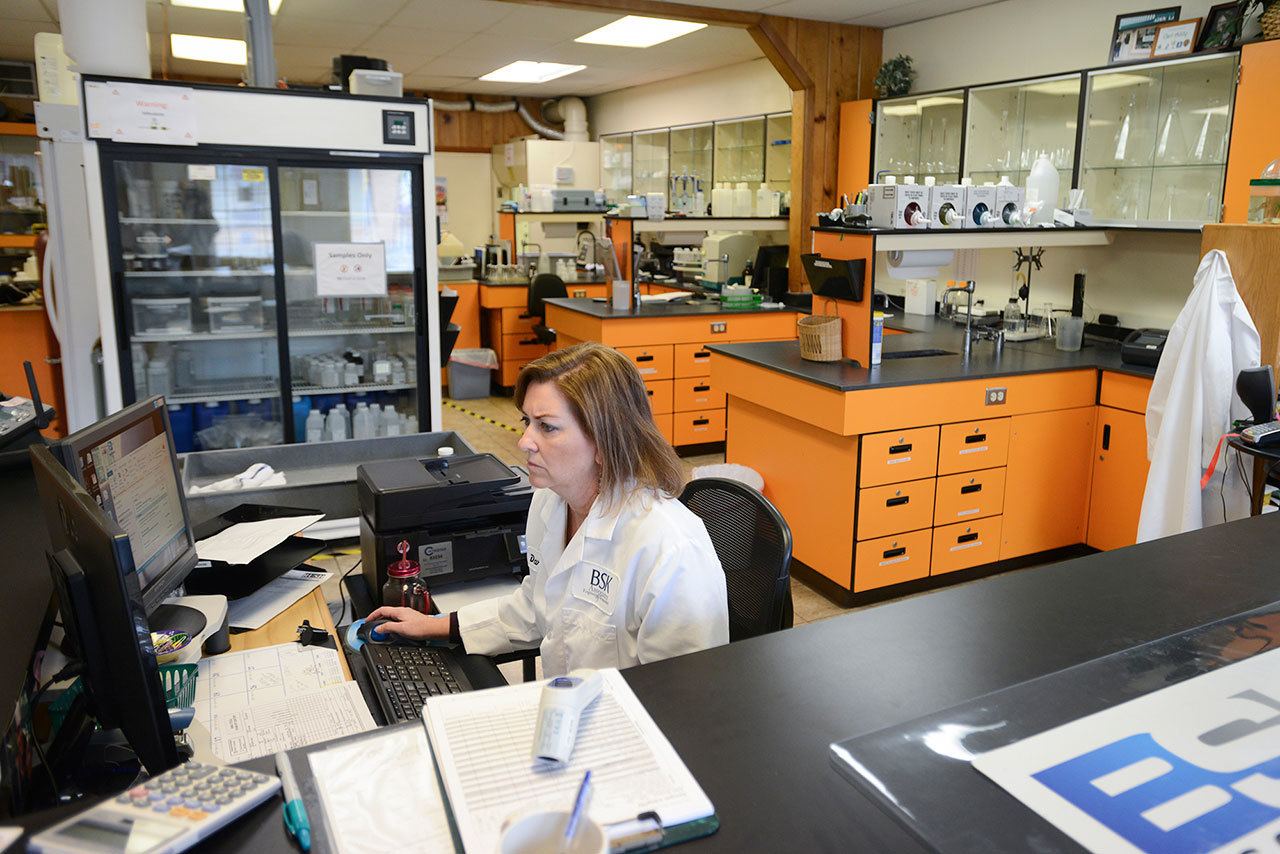By Adam Littman
The Columbian
VANCOUVER, Wash. — A typical month at the Vancouver lab location of BSK Associates used to mean 10 to 15 water samples sent in through various cities and a few other homeowner samples sprinkled in.
In August, the lab with seven full-time employees handled more than 5,000 samples, reported The Columbian.
It’s been a busy summer for BSK Labs in Vancouver amid an increase in samples sent in thanks to the water crisis in Flint, Mich., and elevated levels of lead turning up in drinking water at schools in Tacoma and Portland, Ore., earlier this year.
“Tacoma was the tipping point,” said Renea Rangell, lab director at the Vancouver location.
“We saw an increase in schools wanting to test water before the school year was out, and a second push recently before school started back up. By October, I expect things will die down.”
In Clark County, tests showed elevated levels of lead at Image Elementary School in Evergreen Public Schools, Ridgefield High School and View Ridge Middle School in the Ridgefield School District and Dorothy Fox Elementary School and the Zellerbach Administration Center in the Camas School District.
The school districts all conducted multiple rounds of tests and replaced the bubblers or entire water fountains that tested high.
Administrators with the Sequim School District replaced all sink fixtures at Greywolf Elementary School and four fixtures at Helen Haller Elementary School this summer because excess levels of lead were found in the water from them last spring.
BSK lab officials tell clients to follow the Environmental Protection Agency’s “3T” system for dealing with lead: training, testing and telling.
The testing portion allows samples to detect which individual water source, or sources, have elevated levels of lead.
Rangell said that even if a school gets water from a city, that doesn’t mean the city’s water supply has high levels of lead.
Frequently, elevated lead tests come from issues with pipes, especially with pumping installed before 1986, when the Safe Drinking Water Act made it a requirement to use only lead-free materials in new plumbing and plumbing repairs.
The increase in testing has helped BSK and its staff introduce themselves to the community.
BSK, which is based in Fresno, Calif., took over the Evergreen Boulevard lab after purchasing Addy Lab in 2014.
The company has offices around California, with labs in Vancouver, Fresno and Rancho Cordova, Calif.
The Vancouver lab doesn’t conduct lead tests, so all those samples were sent to California.
In Vancouver, the employees log the samples into the system, label them and let the clients know the results of the tests.
The Vancouver location locally analyzes most short-hold time samples and other tests within the Safe Drinking Water and Clean Water Acts, testing for things such as nitrates, total coliform, E. coli, fluoride, chloride, chlorine and sulfate, Rangell said.
The lab also has a microbiology department and conducts analytical services for stormwater and wastewater clients who are required to monitor their system and discharge water.
Even with the boom in testing, Rangell said not much has changed at BSK in Vancouver in recent months.
A part-time staffer was made full time to deal with the increase in samples, and they put a folding table out to create a new work space in a hallway where employees can sort and label samples. They’ve also rented some space in Beaverton, Ore., for extra storage.
“It’s been a challenge,” said Dennis Wells, business development associate with BSK. “We’ve kept up with it, though. We have a good team here to do it.”
Rangell said the Fresno lab has brought on additional staff and resources to deal with the increased testing from all over. It’s not just schools sending in samples that led to the increased workload.
“We’ve seen an increase in homeowners asking about it,” Wells said. “Now it’s part of the everyday language.”
To get tested, homeowners just have to collect a sample and send it to the lab. It costs $28.25 for lead analysis of a water sample at BSK, Rangell said.
The lab has also heard from businesses where employees were curious about the drinking water and sent in samples.
“Water quality awareness is always a good thing,” Rangell said. “We like to see people being more proactive. It’s a good thing to be informed.”

